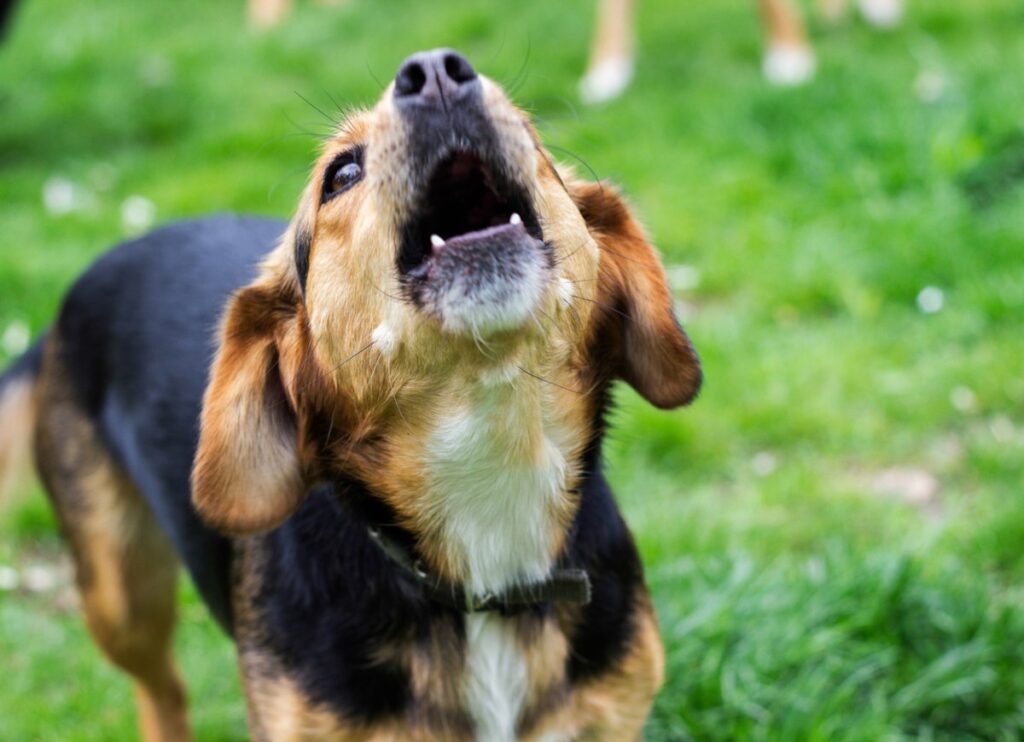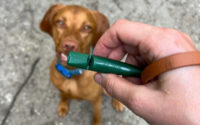Dog Sounds: The Science Behind Dogs’ Sounds & Their Meanings
We know that animals and, in this case, dogs, cannot speak like humans. They cannot express their needs and feelings through words. But, if they do not have a language of words, they have a language of sounds that all pet owners must understand.
Suppose you think that the various sounds produced by your dog are meaningless and they’re just annoying. You are wrong! No sound produced by any animal is meaningless. They try to communicate and convey their feelings of being sad, happy, disturbed etc., via different sounds.

Different dog sounds and their meanings:
Table of Contents
Listed below are some dog sounds and their significance.
Dog barking sound:
The dog barking sound is not new to anyone. Dogs bark for different reasons, i.e. to gain attention for their owners, ask for a treat or food, convey something alarming/dangerous, and sometimes greet you when you come home.
Grunting:
Most dogs express relief and joy when they grunt. Many dogs have often been observed to grunt when they are being petted, played with or put to sleep. They express happiness through grunting.
Howling:
Howling goes back to their history of belonging to the wolf family. Still, Suppose your dog is howling even after you have tried to comfort them. In that case, they’re indicating some alarming situation that they have sensed i.e. environmental risk factors or some dogs howl due to anxiety as well.
Coughing:
If your dog coughs once in a while, there is nothing to worry about as sometimes dogs can be aggressive eaters and eat a big bite of food, causing coughing. But, if your dog is continuously coughing, keep a check on them and inform a veterinarian that coughing can indicate various diseases, including respiratory diseases. Kennel cough is one of the most common cough problems in dogs.
Growling (in sleep):
During sleep, a dog’s brain also goes through some electric activity, just like humans. This is why they produce a growling sound while dreaming in their sleep. There is nothing to worry about.
Sneezing:
If your dog sneezes once in a while, it is completely normal. But, if they’re regularly sneezing, then something might be disturbing them and causing sneezing as a reaction i.e. dust or dirt. You must clean their space and make sure it is safe from dirt.
Snoring:
Some dogs usually snore, like pugs. But other dogs when snoring, could mean that they’re having an allergic reaction to something. You only need to worry if the snoring is too loud and consistent, then they might be dealing with an issue and must be conveyed to a veterinarian.
Whimpering:
The whimpering sound produced by dogs is known as a reverse sneeze reaction and there is nothing complicated about it.
All stated above about dog sounds is observational and common information, if you think your dog is behaving differently than usual, you must try to communicate with them and try to provide them with whatever you think they’re asking for i.e. attention, food etc. If the problem does not get addressed, inform the veterinarian of their unusual behaviour and seek help as they might be experiencing some discomfort.

